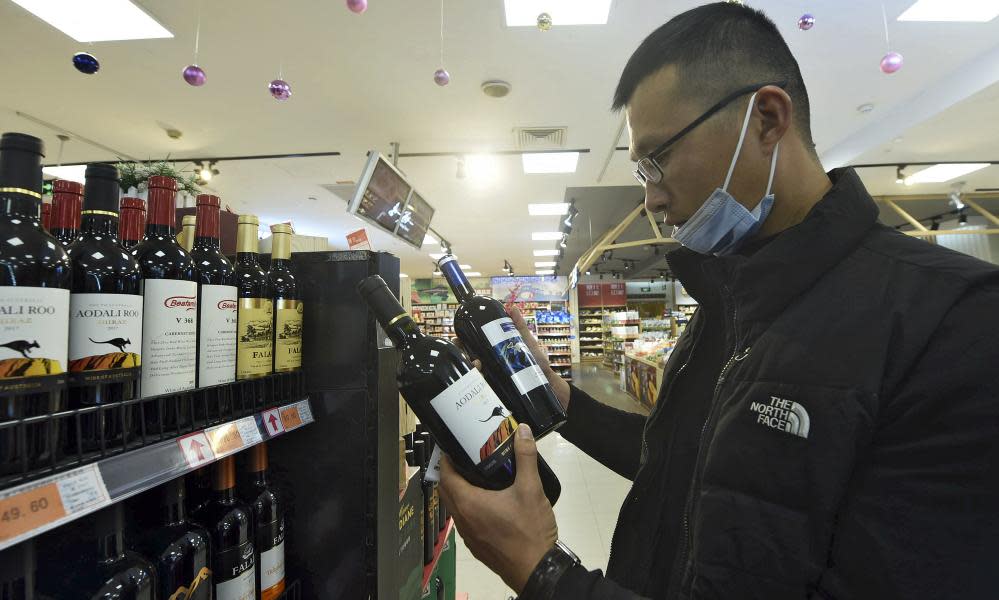Australia takes China to WTO over its trade sanctions on Australian wines

Australia is lodging a formal complaint with the World Trade Organization over China imposing anti-dumping duties on Australian wine exports, the federal government announced on Saturday.
The decision follows “extensive consultation with Australia’s winemakers”, it said, adding: “Australia remains open to engaging directly with China to resolve this issue.”
The move is the latest incident in an escalating trade and diplomatic stand-off between Australia and its largest trading partner, and follows warnings by prime minister Scott Morrison that his government will respond to countries trying to use “economic coercion” against it.
Related: Australia escalates China trade dispute with WTO action
The action came just days after the G7 summit that echoed Australia’s call for a tougher stand against China’s trade practices and a more assertive stance globally.
Morrison attended the summit as part of a G7-plus formula that also brought in the leaders of South Korea, South Africa and India.
Beijing has imposed tough economic sanctions on a range of Australian products in recent months, including tariffs or disruption across several agricultural sectors, coal, wine and tourism.
Many in the Coalition believe the measures are punishment for pushing back against Beijing’s influence in Australia, rejecting Chinese investment in sensitive areas, and publicly calling for an investigation into the origins of the coronavirus pandemic.
Australia has already taken Beijing to the WTO over its tariffs on Australian barley.
Trade minister Dan Tehan said the decision was consistent with the government’s previous use of the WTO and aligned with Australia’s support for a rules-based trading system.
Tehan said last month the government was considering whether to act on its complaint over China putting large tariffs on wine, a move which had virtually wiped out exports.
“We’ve always said that we would take a very principled approach when dealing with these trade disputes, and if we think our industry has been harmed or injured we will take all necessary steps and measures to try to address that,” he told the ABC.
Asked whether Beijing’s possible retaliation to such actions was part of the government’s considerations, Tehan said China and all other countries use the dispute settlement mechanism of the WTO.
“This is a normal course of dealing with these disputes,” he said.
“So what we want to do is make sure that we have a very strong legal case to be able to take to the World Trade Organization, because obviously if you take a case, you want to do your best to try to win it.”

 Yahoo Movies
Yahoo Movies 
